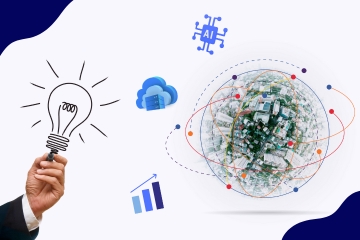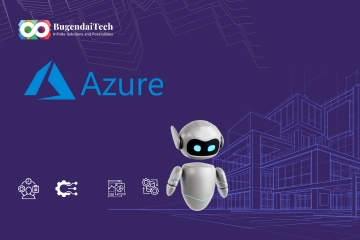In the rapidly evolving digital landscape, cybersecurity has become a paramount concern for individuals, businesses, and governments.
Cybersecurity Revolution
The year 2024 marks a pivotal point in the revolution of traditional cybersecurity measures, which is being revolutionized by the advent of General Artificial Intelligence (GenAI). This new era in cybersecurity promises enhanced protection and a proactive approach to securing our digital future.
How is GenAI used in cyber security?
General Artificial Intelligence, distinct from its narrow AI counterparts, can understand, learn, and apply knowledge across a wide range of tasks without specific programming for each task. This versatility makes GenAI an invaluable asset in the field of cybersecurity.
Unlike traditional AI systems limited to predefined rules and patterns, GenAI can adapt to new threats, learn from diverse data sets, and predict potential security breaches with unprecedented accuracy.
What is adaptive threat detection and response?
One of GenAI's most significant advantages in cybersecurity is its ability to adapt. Cyber threats are constantly evolving, with hackers employing increasingly sophisticated techniques to breach systems. GenAI systems, with their capacity for continuous learning, can identify and respond to these emerging threats in real time.
By analyzing vast amounts of data from various sources, GenAI can detect anomalies and patterns that may indicate a cyber-attack, even if the specific threat has never been encountered.
How to enhance human-machine collaboration?
While GenAI brings remarkable capabilities, the human element remains crucial in cybersecurity. GenAI can augment human expertise by automating routine tasks, providing advanced threat analysis, and offering actionable insights. This collaboration allows cybersecurity professionals to focus on more strategic security aspects, such as developing policies, conducting threat hunting, and responding to complex incidents.
Moreover, GenAI can facilitate better decision-making through its ability to process and analyze large volumes of data. For example, in a security breach, GenAI can provide a detailed analysis of the attack, including its origin, method, and potential impact, enabling faster and more effective incident response.
Securing IoT and Cloud Environments
The proliferation of Internet of Things (IoT) devices and cloud computing has expanded cybercriminals' attack surface. While these technologies offer numerous benefits, they also pose significant security challenges. GenAI is particularly well-suited to address these challenges due to its scalability and ability to handle complex, distributed systems.
GenAI can monitor and analyze data from numerous connected devices in IoT environments, identifying unusual patterns and potential threats. This capability is crucial in preventing attacks on critical infrastructure, such as smart grids and healthcare systems, where security breaches can have catastrophic consequences.
GenAI can enhance security in cloud environments by providing continuous monitoring and automated threat detection. Cloud service providers can leverage GenAI to offer advanced security features to their clients, ensuring that data stored and processed in the cloud remains secure. By dynamically adjusting security protocols based on real-time threat intelligence, GenAI helps maintain robust protection in an ever-changing threat landscape.
What are Privacy and Ethical Considerations?
While the benefits of GenAI in cybersecurity are clear, it is essential to address the privacy and ethical considerations associated with its deployment. GenAI systems require access to vast amounts of data to function effectively, raising concerns about data privacy and potential misuse.
Ensuring that GenAI is used responsibly and ethically is paramount. Organizations must implement robust data governance policies to protect sensitive information and ensure compliance with regulations such as the General Data Protection Regulation (GDPR).
Additionally, transparency in how GenAI systems operate and make decisions is critical to maintaining trust. Developing explainable AI models that provide insights into their decision-making processes can help address these concerns and promote the responsible use of GenAI.
The Future of Cybersecurity with GenAI
As we look to the future, the integration of GenAI in cybersecurity will continue to evolve and mature. The ability of GenAI to learn and adapt will be instrumental in staying ahead of cyber threats. Advances in quantum computing, another emerging technology, will further enhance the capabilities of GenAI, enabling even more sophisticated threat detection and response mechanisms.
Conclusion
GenAI is revolutionizing cybersecurity in 2024 and beyond by providing adaptive, intelligent, and proactive defense mechanisms. By enhancing human-machine collaboration, securing complex environments, and addressing ethical considerations, GenAI is set to become a cornerstone of modern cybersecurity. As we embrace this transformative technology, we can look forward to a more secure and resilient digital future.






Comments